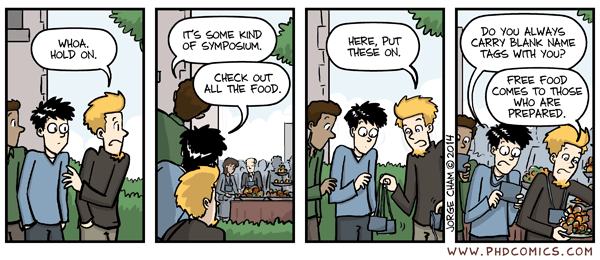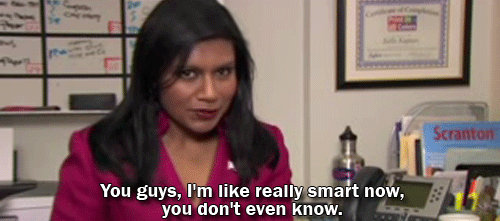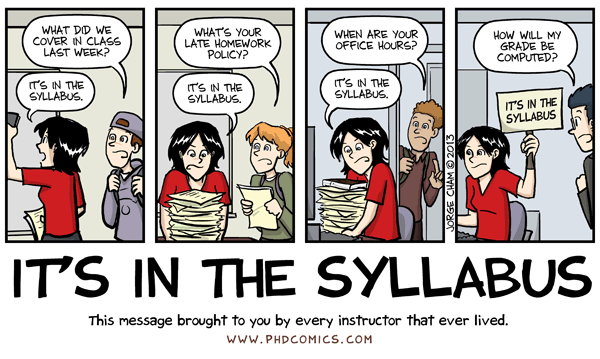Last week, doing anything was a struggle. Literally all I wanted to do was watch cartoons, eat burritos, and perform the bare minimum tasks I could get away with doing (Editor’s note: This is me. Always). Admitting these sorts of things is what makes the idea of an anonymous blog very appealing on occasion. It’s not because I have a super exciting secret life or anything (spoiler alert: I find my own life very exciting on the whole), but because I think a lot of the things I struggle with as a scientist in training are widely felt but often actively overlooked. Graduate school is where you learn how to learn (because as a scientist, the learning never stops), hone key skills, and net a set of accomplishments that will make you stand out in the job market. It’s a place where people who are fired up about things go to dive deep into problems, and it’s no surprise that so many great innovations are the result of doctoral dissertations. And I’d say, about 50 weeks out of the year, I feel fired up about science. About conservation. About freaking adorable invertebrates and gnarly invasive plants.
 |
| Adorbs. |
I’ve been in graduate school for over 5 years, 3 years for my Master’s and 2 full years of PhD work. It would be disingenuous and unhelpful for me to say that, over the past 5 years, I haven’t had motivational slumps. Do I believe there are people who are 100% juiced up all the time, who never have to search for a reason to get reignited over their work? I really do. And I wish I was one of them, but I’m not. Further, I think there are plenty of graduate students who struggle from time to time with motivation. There are a lot of reasons: personal issues, burnout, loss of interest in a project, imposter syndrome. The thing is, I think we are taught to pretend this isn’t happening. I have stock advice I give to all new graduate students when we are chatting, “Anyone who pretends they have their act together is faking it. Everyone is freaking out.” I think I need to do a bit of taking my own advice. I’m probably not the only one who occasionally sits at their desk and goes “blah.” I don’t think feeling a periodic lack of motivation makes me (or you) a bad scientist. I don’t think it indicates a lack of passion. I think pretending it isn’t happening is less than authentic. I think refusing to yield to these periods and rekindling your fire speaks volumes of capability, passion, and drive.
So here is my truth, as I’ve experienced it on several occasions. I’m sailing along fine, killing it in the lab, balancing several projects, keeping my little fingers tippy-tapping on my writing projects. A large milestone approaches. I start to feel like I’m not doing enough (ironically, these sorts of thought progressions usually happen after 8pm in the lab…) and a little touch of imposter syndrome starts to kick up. How rude! I make plans for how to attack said milestone, I budget out my time, I feel like I can totally do this! Then I’m motionless for a stressful span of days, absolutely sure that as soon as I begin I’ll realize the task is impossible. Things spiral, I consume an unnatural amount of peanut butter, then some action or event clicks things back into place and I’m sprinting again. In the spirit of honestly, it’s absolutely frustrating to look at yourself in the mirror and say aloud, “What’s wrong with me this week?” But, in the end, it’s almost like fighting with your best friend. It’s going to happen at some point, and if you take the time to learn something about them and yourself in the process, you can come out the other side closer than ever.
After that overly honest preamble, I’ll present my non-exhaustive, in no particular order list of things that have gotten my butt back in gear in the past. This is how I kiss and make-up with science when I’ve been neglecting it.













